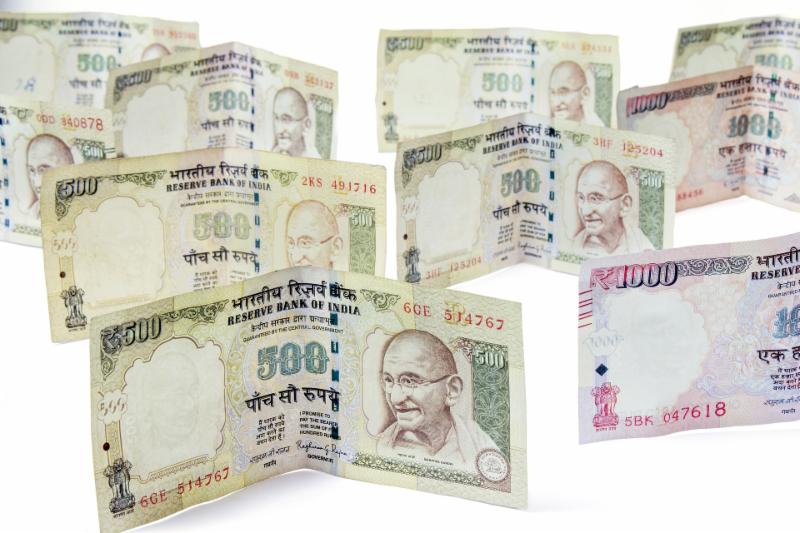Sannam S4 presents this newsletter with a brief overview of key financial, tax & regulatory updates from India which can impact your organisation's India plans and operations.
|
|
|
NEW YEAR- INDIA'S CHANGE AGENDA ROLLS ON
Welcome to the latest of Sannam S4's- Doing Business in India update (monthly newsletter), with a particular focus on finance, regulatory, compliance and tax matters. The dawn of a new year brings with it a continuation of activity in India to make doing business in India easier. This combined, with the country digesting the effects of the recent demonetisation means there is lots to report on. We hope you enjoy reading this and if you have any particular suggestion on topics you would like to see more coverage on then please do let us know.
|
| Indian Corporates and businesses are facing short-term downside risks due to the cash crunch arising from the government's decision to invalidate old high-value currency notes, but the move will definitely be beneficial for the Indian economy in the long run in eradicating black money and terrorism funding, and moving to a digital economy. For more details on the demonetisation move, please refer to our recent blog here. |

|
|
GOODS & SERVICE TAX (GST) LAW
Though registrations under GST for businesses have been announced, due to the delays in negotiations with states, and as a result of the disruptions in Parliament on demonetization, it has now been announced that GST will be made effective from July 2017 instead of April 2017. GST could result in a wider tax base and greater participation in the formal economy. Watch this space for more updates on GST
|
|
|
CROSS - BORDER ONLINE SERVICES NOW SUBJECTED TO SERVICE TAX: FOREIGN SERVICE PROVIDERS TO BE AFFECTED
The Ministry of Finance recently amended service tax rules related to Online Information and Database Access or Retrieval services (OIDAR).
Key changes effective from 1 December 2016 include:
- The definition of OIDAR services is expanded to include electronic services such as advertising on the internet, providing cloud services, online supply of digital content, digital data storage, online gaming, etc.
- The liability to pay service tax for B2C transactions will be shifted to the overseas service provider.
- For business-to-business (B2B) transactions, the place of supply for OIDAR services will be the location of the service recipients. These services will become taxable under the reverse charge mechanism.
- For business-to-consumer (B2C) transactions, OIDAR services provided by an overseas service provider to Indian recipients will become taxable.
- The liability to pay service tax for B2C transactions will be shifted to the overseas service provide.
|
|
TAX TREATY WITH SINGAPORE & CYPRUS AMENDED TO BRING PARITY WITH MAURITIUS
|
Press release dated November 18, 2016 provides a revised agreement between India and Cyprus for the avoidance of double taxation applicable from April 1, 2017. The new DTAA provides for source-based taxation of capital gains arising from alienation of shares, instead of residence-based taxation provided under the existing DTAA. Further, they have introduced a clause for investments made before April 1, 2017 to be governed by the old DTAA. Also, the scope of Permanent Establishment has been expanded and the tax rate on royalty in the country from which the payments are made has been reduced to 10%.
|

Image Source: The Economic Times
|
|
GOVERNMENT RESTRICTS TAX DEPRECIATION RATE TO 40% ON ALL DEPRECIABLE ASSETS
|
The notification dated November 7, 2016 restricts the highest rate of depreciation to 40% for all assets which were eligible for depreciation at a rate higher than 40%. This applies to all tax payers, including newly set-up domestic manufacturing companies set up and registered on or after 1 March 2016, which opt for concessional rate of 25% rate of tax (instead of normal rate of 30%) without any tax incentives (new companies).
The notification states that the effective date of this change is 1 April 2016 for new companies and 1 April 2017 for other taxpayers. The exact tax year from which this change shall take effect for both these taxpayers is a matter of ambiguity, which the CBDT may need to clarify at the earliest.
|

|
|
Newslinks: Income Tax India |
|
|
EMPLOYEES ENROLMENT CAMPAIGN STARTS FROM JAN 1, 2017 UNDER EMPLOYEES PROVIDENT FUND
| The EPFO (Employees' Provident Fund Organisation) has launched a campaign to enroll more workers, sets INR 1 per annum fine for late registration. To encourage firms to enroll their workers under schemes run by the retirement fund body, a three-month campaign has been launched beginning 1 January 2017 where employers will get amnesty and pay 1 Indian Rupee (INR) as damages for not registering their employees earlier. |

Image Source: The Economic Times
|
Newslinks: The Economic Times; The Hindu Business Line
|
-
Auditor rotation: House panel suggest relief for private firms, subsidiaries of foreign companies
-
Read more
- Cabinet approves sops to boost "made-ups" sector- Read more
- Government fixes 8.65% interest rate for provident fund (PF) deposits, cut from 8.8%- Read more
- CRISIL cuts GDP forecast to 6.9% on note crunch- Read more
- Union cabinet approves new visa regime- Read more
- SEBI eases rules for angel funds investment in startups- Read more
- India ranked 102nd on enabling cross border trade: World Economic Forum- Read more
- IBBI (The Insolvency and Bankruptcy Board of India) notifies norms for liquidation process- Read more
- Ministry of Corporate Affairs notifies new section for strike-off/ removal of company under the new Companies Act, 2013- Read more
- Government expected to notify regulations for medical devices like five year cap on shelf-life of medical devices etc.- Read more
|
|
For further details and to understand the impacts and actions to take related to any of these amendments, please contact:
|

|

|

|
|
Ed Dixon
Group Chief Operating Officer
& Managing Director
|
Kapil Dua
Director - Financial Consulting
|
Abhinav Sood
Manager - Tax & Regulatory Consulting
|
|
|
|
|
|
|
You can also follow us on social media for important updates on various tax, financial and regulatory changes which may impact your organisation / operations in India.


|
|
|
|
Sannam S4 Ltd is a company registered in England and Wales. Registered no. 09002645. Registered office: New Bridge Street House, 30-34 New Bridge Street, London EC4V 6BJ.
|
|
|
|